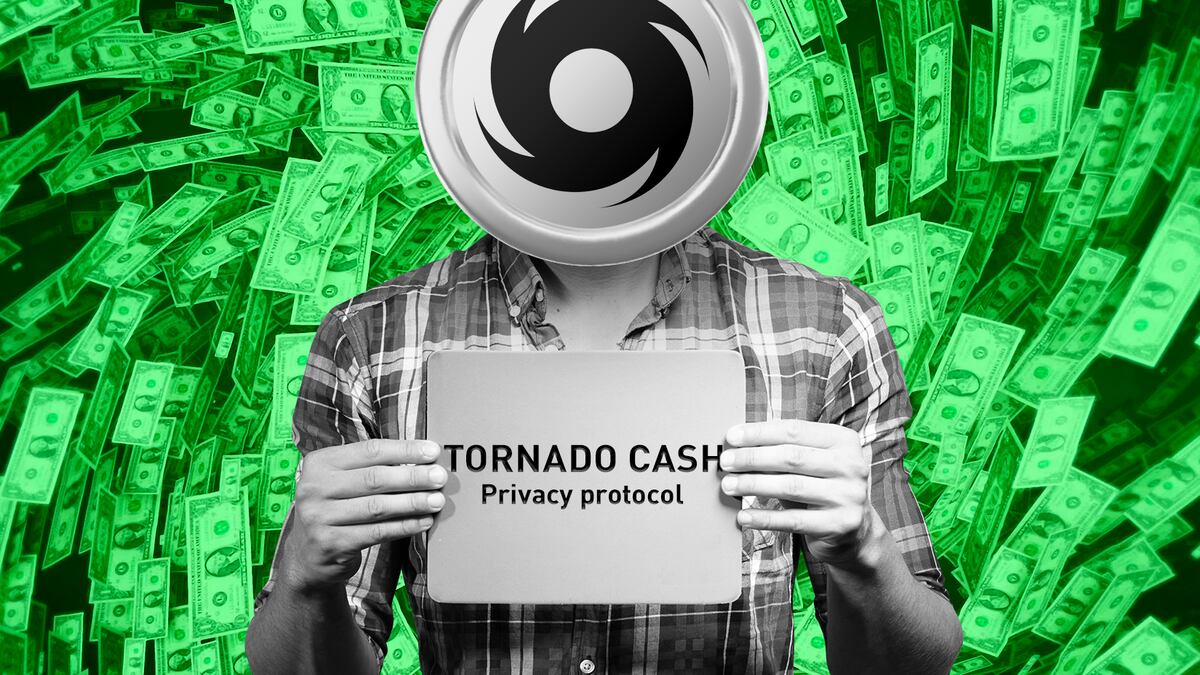- Tornado Cash's cryptocurrency spiked 150% following key news in lawsuit.
- A US court signalled the government may not challenge latest legal loss.
- Crypto lawyers question whether crypto mixer will become available again.
The cryptocurrency associated with Tornado Cash fell more than a third in the last 24 hours after a court case spurred a 150% spike in its value on Wednesday.
The TORN token’s rollercoaster ride was triggered by news that the US government did not oppose a court ruling that gutted sanctions of Tornado Cash, which authorities said poses a threat to national security.
The development cemented a major victory for crypto privacy advocates.
“This an absolute win,” Preston Van Loon, a plaintiff in the case, wrote on X.
“A win for unstoppable applications. A win for online financial privacy. A win for decentralization. A win for Ethereum.”
Stolen crypto
In 2022, The US Treasury Department’s Office of Foreign Assets Control, or OFAC, sanctioned Tornado Cash, citing the protocol’s popularity with North Korean hackers who used it to launder stolen crypto.
That crypto was then used to fund the pariah nation’s nuclear weapons programme, according to US officials.
The next year, six Tornado Cash users sued OFAC and argued that the agency erred by outlawing the smart contracts at the heart of the platform.
The law, they contended, did not cover software but rather just people and entities such as companies. The government disagreed, and in August 2023, a US court ruled largely in favour of OFAC.
Cause célèbre
But the case had become a cause célèbre among crypto privacy advocates, especially after three Tornado Cash developers were charged with facilitating money laundering in the US and the Netherlands.
Led by user Van Loon, the plaintiffs appealed the US court ruling. In November, an appellate court sided with them.
The three judge panel in New Orleans found that computer programmes, in this case smart contracts employed by Tornado Cash, are not “sanctionable” the same way people or companies are.
“We hold that Tornado Cash’s immutable smart contracts (the lines of privacy-enabling software code) are not the ‘property’ of a foreign national or entity,” the court wrote in its 34-page opinion.
Two ways
On Tuesday, the appellate judges signalled the Treasury had not asked the court to reconsider that opinion, and ordered a lower court based in Texas to remedy the situation.
That could go two ways, according to Matt McGuire, a partner at Arktouros, a law firm that specialises in sanctions compliance and DeFi. The lower court could “vacate” OFAC’s designation of Tornado Cash as a sanctioned entity.
That would allow US residents to start using the crypto mixer again, he told DL News.
On the other hand, the court could only lift the sanctions for Van Loon and his co-plaintiffs.
“That would allow the plaintiffs to use the smart contracts, but the [sanctions] designation would still be in force for all other US persons,” McGuire said.
If OFAC wants to continue defending the sanctions, it has one other option: it could appeal the decision to the US Supreme Court by February 24.
But that appears unlikely, according to Peter Van Valkenburgh, executive director of crypto think tank Coin Center.
“It’s good news though not the end of the story,” he wrote on X, referring to the appellate court’s order.
‘Nigh impossible’
When the US sanctioned Tornado Cash, the industry howled. The protocol was just a tool, albeit one made from lines of code. Would Washington sanction a book, or a hammer?
Van Loon and other Tornado Cash users, bankrolled by crypto exchange Coinbase, sued the Treasury Department for violating Americans’ financial freedom and their Constitutional right to free speech.
Co-plaintiff Tyler Almeida, for example, had used the protocol to donate to Ukraine after it was invaded by Russia, fearing that his donation would otherwise draw attention from “Russian state-sponsored hacking groups,” according to the lawsuit.
Others in the industry stepped up to support them.
“Like any tool — indeed, like the internet itself — software like Tornado Cash can be misused for illicit purposes,” two of the industry’s top advocacy groups, wrote in a brief filed on Van Loon’s behalf.
“But it is used primarily for legitimate and socially valuable reasons.”
Long-shot
It was a long-shot — the sanctions were issued in the name of national security, and courts often defer to government agencies in such cases, lawyers previously told DL News.
In an August 2023 opinion, Judge Robert Pitman, of the US District Court for the Western District of Texas, made quick work of the arguments made by Van Loon and company.
Although the government can’t ban someone from donating to, say, Greenpeace, there’s no constitutional right to do it using a particular platform, the judge said.
He also found that the Treasury Department was well within its authority to sanction Tornado Cash, and was unpersuaded by the argument the protocol was decentralised.
“It’s unfortunate that it was in many ways a [case] that was nigh impossible to win,” Evan Zinaman, attorney and the founder of crypto law firm Trailbreak, told DL News at the time.
OFAC overstepped
But Coinbase said it would fund an appeal. And it worked.
“OFAC overstepped its congressionally defined authority,” the three-judge appeals court panel wrote in its November opinion.
To be sure, the court recognised the importance of addressing online national security threats.
But the panel found that the law invoked to sanction Tornado Cash — the 47-year-old International Emergency Economic Powers Act — was ill-suited to “target modern technologies like crypto-mixing software.”
Cautionary note
If Congress wants to take action against blockchain-based platforms to protect national security it should pass another law, the court suggested.
But legal experts cautioned against reading too much into the US appellate ruling.
“While we should celebrate this, we should temper our celebration,” Reuben Yap, co-founder of privacy protocol Firo and former partner at Malaysian law firm Reddi & Co Advocates, previously told DL News.
“This covers only whether smart contracts can be sanctioned and does not necessarily give protection to the developers of such protocols.”
The devs
Indeed, two Tornado Cash developers find themselves in dire straits.
In August 2023, Roman Storm was charged with three counts of conspiracy: to commit money laundering; operate an unlicensed money-transmitting business; and to violate US sanctions.
His trial begins in April, and faces decades in prison if he’s found guilty.
Alexey Pertsev, a fellow Tornado Cash developer, was sentenced to five years in prison by a Dutch court in 2024. He is appealing his conviction.
A lawyer for Pertsev has said she will consider using sections of the US appeals court’s opinion to help appeal his conviction for money laundering.
“Some of the aspects that have been dealt with in this court are relevant for the Dutch case as well,” Judith de Boer, Pertsev’s appeals lawyer, told DL News in November.
Federal prosecutors are attempting to prevent Storm from doing the same.
“Van Loon has no bearing on this case,” prosecutors wrote in a filing last week.
“Van Loon rests on a factual conclusion that the Government not only does not dispute, but has affirmatively alleged in the Indictment: the Tornado Cash pools are immutable smart contracts.”
Aleks Gilbert is DL News’ New York-based DeFi correspondent. You can contact him at aleks@dlnews.com.








